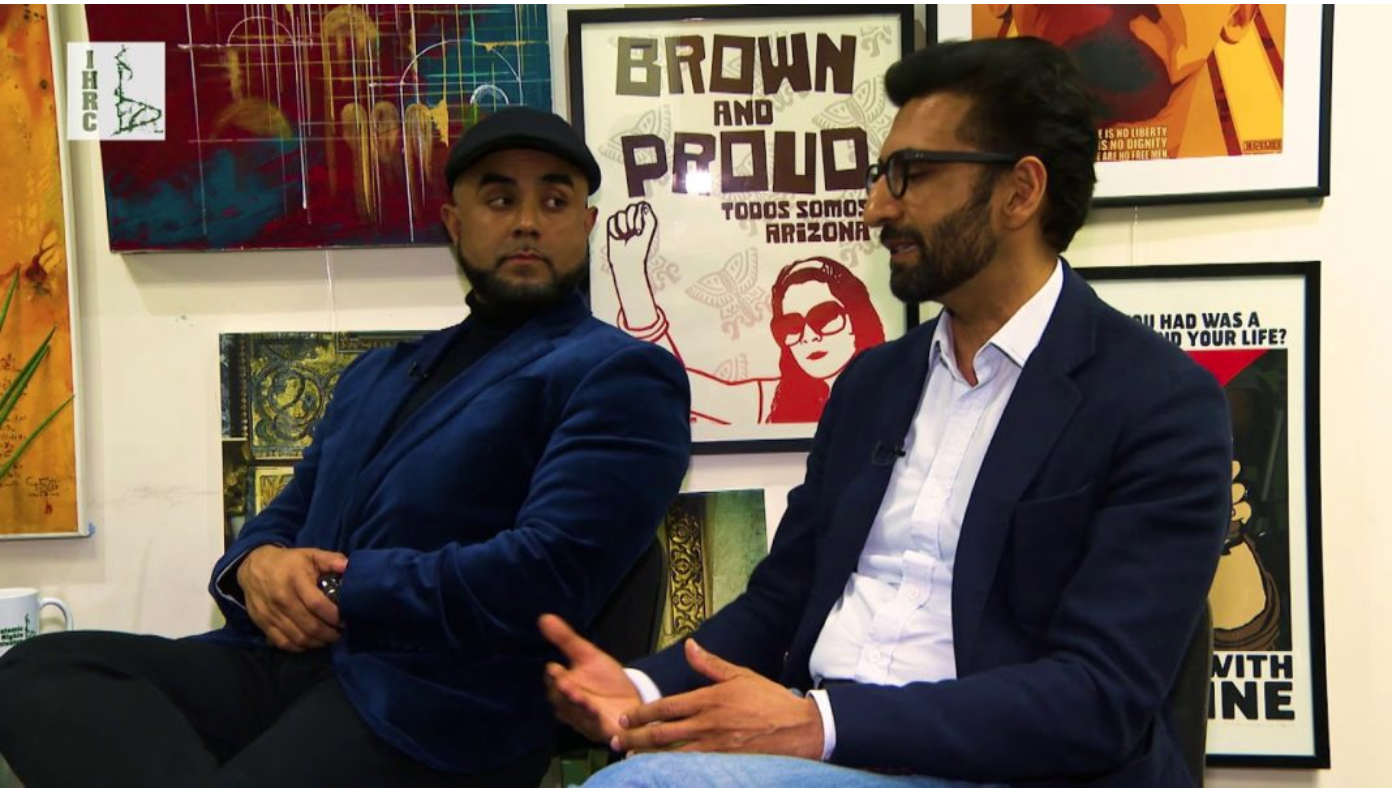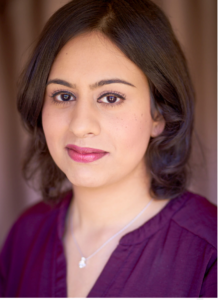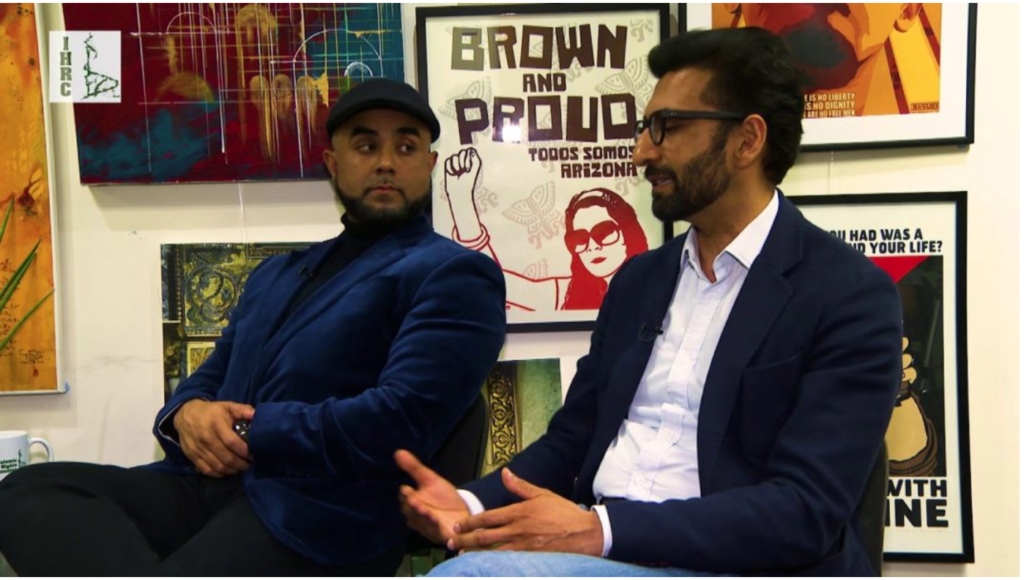
Context
Academics with expertise in Islamic Studies have much to offer a public arena saturated with prejudiced media coverage, self-styled experts and growing anti-Muslim sentiment. However, making interventions in the mainstream can come at a price if individuals become targeted by well-funded interest groups. This politicization of the field can also force scholars to make the difficult decision of whether or not to engage with governments in case they are labelled as Islamophiles or “Islam sympathisers.” For those of us working on the subject of countering violent extremism (CVE), this can hold professional and personal risks when researching within our communities, such as the accusation of colluding with state power or benefitting financially from the “radicalization industry.” This dilemma impacted me personally, as one of the academics invited to write a paper for the UK government Commission for Countering Extremism (CCE). In this brief essay, I provide an account of my interactions with the CCE and outline the factors that ultimately led to my work being excluded from publication. The incident illustrates the pitfalls and unspoken rules by which CVE functions in Britain and highlights the influence of an overlapping network of interest groups and institutions that frame narratives about the threat of violent radicalization and narrow rules of engagement.
“For those of us working on the subject of countering violent extremism (CVE), this can hold professional and personal risks when researching within our communities, such as the accusation of colluding with state power or benefitting financially from the ‘radicalization industry.'”
British CVE Policy
Much of UK counter-terrorism policy architecture was designed after the London Bombings of 2005. Successive British governments constructed a body of legislative, security and social policies that had profound repercussions upon British Muslim communities which continue to reverberate until today. The overarching strategy – ‘CONTEST’, has four strands intended to; ‘Pursue, Prevent, Protect, Prepare.’ It is the Prevent element of the policy that is most controversial and that has polarized supporters and critics. Successive governments revised Prevent, first in 2011, 2013, and 2015 and again in 2018. The Prevent programme aims to challenge the ideology of those who promote terrorism and identify individuals vulnerable to becoming ‘radicalised’. According to the government, hundreds of young Muslims have been stopped from entering Syria/Iraq and anti-radicalization, resilience projects are claimed to have been delivered to tens of thousands of people. Supporters have suggested that ‘Prevent is a success. It saves lives for comparatively little taxpayer money and is regarded by many outside the UK as possibly the most advanced, world-leading programme of its type in the world.’
While some British Muslims cooperated with the policy, many vehemently opposed it. This divide is the result of successive governments favouring compliant community organizations and marginalization of those opposed to state securitization polices. The possibility of social engineering Muslim opinion was considered in the early stages of the strategy within a 2007 government document.[1] The guidance suggested that the ‘key measure of success will be demonstrable changes in attitudes among Muslims, and wider communities they are part of, locally and nationally’. This objective has succeeded to a degree over the last decade as numerous individuals and organizations have tried to position themselves as voices of moderation in Muslim communities.[2] Critics of Prevent have argued that the policy has not only failed but, instead of eliminating terrorism, it has actually made the problem worse because it is fundamentally flawed in its conceptualisation and undermined in its delivery – a claim evidenced in a large and growing body of academic studies.
“The core problem with the Prevent strategy is its theorization of the concepts of radicalization and extremism.”
The core problem with the Prevent strategy is its theorization of the concepts of radicalization and extremism. Radicalization is deeply contested among specialists for its lack of clarity as a catch-all term. Growing public disquiet led to over 250 academics writing an Open Letter against Prevent in 2015. The following year, more than 140 academics and experts signed another letter raising concerns over the ‘22 risk factors’ outlined in the revamped strategy and asked the government to release the evidence base underpinning it. More recently, Prevent has been implicated in the secret collection of data and linked to “Astroturfing.” Despite more than a decade of implementation and expenditure of millions of pounds of public money – there is little evidence that it has succeeded in achieving its intended outcomes. This is painfully demonstrated in instances where individuals referred to the Prevent, perpetrated acts of terrorism. Despite several reports on counter-terrorism policy, there is no publicly available government assessment of whether UK counter-terrorism strategies are reducing terrorism. Perhaps conscious of the growing backlash, the government in recent years attempted to offer a veneer of public consultation and evidence-based policy making through the creation of its advisory body.
The CCE was launched in the aftermath of the Manchester Arena bombing of 2017 and defines itself as a non-statutory expert committee to advise the government on policies relating to extremism. It received a largely negative response in British Muslim communities for the appointment of its Lead Commissioner, Sara Khan who was considered a controversial choice. She remains a divisive figure within communities for her endorsement of Prevent, and perceived lack of expertise and credibility. Prior to taking her position at the CCE, Khan led Inspire, – an ‘independent’, women led counter extremism organization that received considerable media coverage for its #MakingAStand campaign, but was later found to be funded by a secretive government department unit – Research, Information and Communication Unit (RICU), which, has disseminating counter-extremism narratives as part of the government’s Prevent strategy since 2011 and was accused of helping to create a network of “grass-roots” Muslim organizations. Tellingly, this connection is not a surprise given the dense overlapping networks of journalists, think-tanks and government employees such as the Policy Exchange, Quilliam Foundation, Henry Jackson Society and individuals working with the Home Office.[3] This is illustrated by the fact that Sara Khan’s sister Sabine, was also the Deputy Chief of RICU, and Hannah Stuart, currently seconded to CCE, is from the Policy Exchange and was a Research Fellow at The Henry Jackson Society. Furthermore, one member of the CCE’s Expert Group, Emman El-Badawy, also works as the Head of Research in the Tony Blair Institute for Global Change and has in the past worked at Quilliam. These linkages highlight the way in which a closed, self-referential ‘cross-pollinating network of think-tanks, academics and politicians are able to organise in and wield influence over state programmes like counter-extremism’ and influence public perceptions.

Tweeting Anti-Semitism or Manufactured Outrage?
“I choose to work with the CCE fully aware of the risks alluded to above. Some of my colleagues advised me against this, arguing it would be help legitimate its dubious existence. In responding to the CCE call to subject specialists, my intention was to provide a critical, assessment of Islamist groups in the UK, knowing that other contributors may not.”
I choose to work with the CCE fully aware of the risks alluded to above. Some of my colleagues advised me against this, arguing it would be help legitimate its dubious existence. In responding to the CCE call to subject specialists, my intention was to provide a critical, assessment of Islamist groups in the UK, knowing that other contributors may not. My paper outlined their establishment, diversity and evolution, contrasting them with contemporary Muslim civil society and human rights advocacy groups. To my disappointment, a completely unrelated occurrence damaged my relationship with the CCE, after my colleague Tahir Abbas and I, launched a book at the Islamic Human Rights Commission (IHRC).[4] Two days later, I received a letter from Sara Khan, accusing me of making certain comments at the event and tweeting articles that contained ‘unacceptable anti-Semitic views.’ Khan urged me to dissociate myself from the tweets and meet with her and a Jewish organization to learn about the ‘real-world consequences of these harmful and divisive views.’[5] The offending tweets related to Israel, anti-Semitism and the Labour party. Sara Khan similarly accused Tahir of spreading anti-semitic comments via an article on anti-Semitism within the Labour party.[6] For the record, I use Twitter as an archiving tool and generally post content that may be of interest to those who follow Islam and Muslim stories. I have tweeted and retweeted tens of thousands of articles on religion, politics and interfaith relations including the sensitive matter of the Israel/Palestine conflict, whilst not agreeing or endorsing the content. I tend not to share my personal opinions, only remarking on pieces I think are worth reading.
“To my disappointment, a completely unrelated occurrence damaged my relationship with the CCE, after my colleague Tahir Abbas and I, launched a book at the Islamic Human Rights Commission (IHRC).[4] Two days later, I received a letter from Sara Khan, accusing me of making certain comments at the event and tweeting articles that contained ‘unacceptable anti-Semitic views.’ “

I am not sure if the Lead Commissioner actually read either of the articles I shared from these well-known news information websites. There was no response to my question about what I was alleged to have said at the IHRC which conflicted with my research for the CCE or how these articles were anti-Semitic.[7] The reality of course, is that in present public discourse, any criticism of Israel can be interpreted as a form of anti-Semitism. This particular definition is far from universally accepted by all Jewish academics or Israeli citizens.[8] Allegations of anti-Semitism within the Labour Party have surfaced since the election of Jeremy Corbyn as leader and grow louder as the general election looms next month. Prominent Jewish commentators have noted that Jewish fears have been exploited for political gain by the Conservative Party and assisted by elements of the media. Tahir and I experienced these tactics first hand in a The Sunday Times article, co-written by Andrew Gilligan, where he accused us of anti-Semitism on the basis of the same tweets Sara Khan highlighted in our private correspondence. He also fabricated a quote and attributed it to me, claiming that I had taken the role with the CCE to help “dismantle” Prevent.’[9] Gilligan has a notorious track-record of distorting the statements of British Muslims and The Times also recently smeared the UK’s main Muslim university student umbrella group FOSIS. As over 40 academics pointed out in an Open Letter, ‘if the standards that Gilligan applies to Hamid and Abbas were applied to his and other Times journalists’ dishonest coverage of Muslims, he would have been ostracised by major media outlets many years ago.’[10] The timing of these events appears to be a co-ordinated effort between certain viewers of the IHRC book event, Gilligan and the CCE –to cause us reputational damage.
A Question of Neutrality
On its website, the CCE claims to be an independent, non-statutory expert committee of the Home Office, however, in practice it seems to be influenced by external organizations. The response of the Lead Commissioner to The Sunday Times article could have been handled in a more impartial way. Our treatment by the CCE in response to a newspaper casts doubt on its proclaimed independence and raises several unanswered questions about how it deals with the pressure of external actors. Was the social media of other academics and experts commissioned by the CCE also scrutinised? If not, why were we singled out for our social media content? Who presented this information to the CCE? How did The Sunday Times acquire ‘internal documents’ from the CCE? And was the CCE coerced into insisting that we attend meetings with the Jewish organization?

Based on my experience, the CCE seems to have no real appetite for considering different perspectives on the issue of Muslim faith-inspired activism. It also confirms one of the arguments in my paper –Muslim individuals and organizations that take a critical view of government domestic security strategies or foreign policies are likely to be dismissed as radicals, Islamists or extremists. The CCE has already passed judgment on the UK’s most vocal Muslim activist lobby groups, representative bodies and human rights organizations and refuses to engage with them. This unfortunately stifles real debate and constructive engagement and obscures the complex ways in which the British state has colluded with Islamist groups in the past and how it continues to selectively engage them in the present.
“Based on my experience, the CCE seems to have no real appetite for considering different perspectives on the issue of Muslim faith-inspired activism. It also confirms one of the arguments in my paper –Muslim individuals and organizations that take a critical view of government domestic security strategies or foreign policies are likely to be dismissed as radicals, Islamists or extremists.”
While presenting the summary of my paper at the CCE presentation of findings event, I suggested that most traditional Islamist organizations had declined in influence and the current generation of prominent activists groups were not trying to pursue a shariah-centric social order in Britain and are more interested in rights-based advocacy. In response, Sara Khan dismissed my analysis and stated that these “organizations are lying.” This opinion was reiterated in her final letter to me, writing that she ‘strongly disagreed with my argument that Islamist groups are engaged in human rights-based activism.’[11] Her viewpoint is not new and was already articulated in a co-authored book in 2016, which yet again demonstrates the prejudged positions taken by the CCE. Two of the papers published by the CCE on Islamism in the British public sphere are essentially different versions of the Islamists under the bed thesis. The academic calibre of the Quilliam Foundation paper amounts to a crude rehashing of dossiers by the Henry Jackson Society and Policy Exchange.[12] The other draws upon the author’s PhD, and though more sophisticated, recycles static representations of revivalist movements and charges them with attempting to transform liberal values and infiltrate government and civil society institutions.[13]
Concluding Remarks: Was it Worth it?
The official reason why our papers were not published are given on the CCE website. I was apparently punished for non-compliance.[14] Tahir, on the other hand, who despite co-operating with CCE and having close to a hundred publications in leading journals, was told that his paper ‘failed’ the CCE peer review process. The outcome vindicates the reservations that some had about our involvement –however, I remain committed to principled engagement wherever possible. If circumstances had been different and my paper was published and referenced in their final report, it would have looked inconsistent with their narrative on Islamism and jarred strikingly with the two aforementioned documents. This provided another incentive for its non-inclusion. Our experience bears similarities with other academics who participated in state-led consultations on related issues.[15] The real reasons why we had our papers excluded by the CCE is because we did our book launch at the IHRC – an organization it considered to be ‘extremist,’ and because of the external pressure generated after the publication of The Sunday Times article.
“The real reasons why we had our papers excluded by the CCE is because we did our book launch at the IHRC – an organization it considered to be ‘extremist,’ and because of the external pressure generated after the publication of The Sunday Times article.”
The CCE report released early last month is, in my view, self-serving, as it seeks statutory status and the recruitment of two further commissioners to continue its work, but has yet to develop a definition of extremism that engenders widespread acceptance, or propose meaningful recommendations to challenge theo-political violence. It has not secured the co-operation of Britain’s main Muslim bodies and there is no mention of Islamophobia, though a significant amount of space is given to discussing the backlash experienced by Prevent practitioners. Unsurprisingly it targets vocal groups such as the IHRC, MEND and CAGE for promoting ‘hateful extremism.’ Regardless of whether one agrees with the politics of these organizations, they should be engaged along with representatives from all of Britain’s diverse Muslim communities. It is difficult not to be sceptical of CVE policies that appear to be part of the problem, rather than the solution. Unfortunately, the UK’s CVE policies have failed, as they are designed by an establishment locked into protecting its long-term strategic interests that are not anchored to genuine democratic accountability. Given the continued persistence of the threat of terrorism, this begs the question: what has the Prevent policy actually succeeded in preventing and why hasn’t the problem of violent extremism gone away? The continuation of these strategies is likely to result in more of the same and to perpetuate polarization, discrimination and disengagement within British Muslim communities.
Dr. Sadek Hamid is author of Sufis, Salafis and Islamists: The Contested Ground of British Islamic Activism (I.B. Tauris, 2016), co-author of the British Muslims: New Directions in Islamic Thought, Creativity and Activism (Edinburgh University Press, 2018) and co-editor of Political Muslims: Understanding Youth Resistance in a Global Context (Syracuse University Press, 2018)
[1] Department for Communities and Local Government (DCLG) (2007). Preventing violent extremism pathfinder fund: guidance note for government offices and local authorities in England. Department of Communities and Local Government, London.
[2] The most well known organization with considerable impact on the subject outside the Muslim communities is the controversial Quilliam Foundation, set up in 2007 by three former members of radical-Islamist movement Hizb ut-Tahrir – ‘Ed’ Hussain, Maajid Nawaz and Rashad Ali.
[3] It is noteworthy that Sara Khan was a former member of an Islamist organization –the Young Muslims UK, but has not publicly acknowledged this. Leaving religious conservative movements, writing memoirs and joining right-wing think-tanks has become a lucrative career trajectory for a number of British Muslims since the London Bombings of 2005.
[4] Ironically, Tahir Abbas and I were informed by the IHRC that some of its donors were unhappy that we were working with the CCE and that they may withdraw their support if our book launch went ahead. We both had to provide public statements explaining our position in relation to the CCE before our event was eventually given the go ahead: https://www.ihrc.org.uk/activities/21420-author-evening-with-sadek-hamid-tahir-abbas-political-muslims/
[5] Email correspondence to author on 27 April 2019
[6] He added the following comments in this tweet of the Guardian article: ‘The fear of anti-Semitism is greater than the reality of anti-Semitism in the Labour Party. Combined with business elites wanting to ensure that a socialist government never comes into power, Corbyn is the target yet again.’ After the Gilligan story broke, Tahir deleted the tweet.
[7] Email correspondence to Sara Khan from author on 30th April 2019. Electronic-Intifada is a prominent pro-Palestine online platform that covers the Israeli-Palestinian conflict and Middle East Monitor is also a popular news site also known for its pro-Palestinian outlook.
[8] See for example; Finkelstein, Norman. Beyond Chutzpah: On the Misuse of Anti-Semitism and the Abuse of History, University of California Press, 2005 and Josh Kaplan, Contesting Anti-Semitism: Human Rights, Israel Bashing, and the Making of a Non-Problem, Anthropological Quarterly Vol. 83, No. 2 (Spring 2010), pp. 429-448.
[9] After the publication of his article, Gilligan attempted to further discredit me on Twitter, scrapping articles critical of the government and suggested that my retweets reflect “a worldview.” See here
[10] The Sunday Times refused to publish the Open Letter hyperlinked above and would not retract or correct the article about us. After hinting that we were considering legal action, Tahir Abbas secured a right to reply in the Letters to the Editor section of the paper: ‘Taking the fight to anti-Semitism: https://www.thetimes.co.uk/article/islam-must-not-be-put-above-criticism-5h960xrd8
[11] Email correspondence with author 7th October 2019
[12] The Quilliam Foundation faced severe criticism for the flawed methodology of its previous report by leading academics in the field, see for instance: https://www.theguardian.com/commentisfree/2018/nov/11/84-per-cent-of-grooming-gangs-are-asians-we-dont-know-if-that-figure-is-right
[13] The Tony Blair Institute for Global Change, has recently produced a report scoring the threat posed by prominent Muslim civil society groups: https://institute.global/sites/default/files/2019-01/Narratives%20of%20Division%20report.pdf
[14] The CCE does not disclose how it reneged on its agreement to reimburse me for my substantial travel costs to attend the presentation of findings event in London. During this time, Tahir relayed to me his dismal experience of attending the meeting with Sara Khan and the Jewish organization and showed no interest in listening to what he had to say and confirmed the futility of the process –so I refused to engage with it any further.
[15] See for example the account given by Chris Allen on why he left the Anti-Muslim Hatred Working Group: https://www.huffingtonpost.co.uk/dr-chris-allen/anti-muslim-hatred-working-group_b_6064866.html. There are other similar examples such as Professor Alex Stevens, who resigned his position on the Advisory Council on the Misuse of Drugs, saying that the government’s vetting process compromised the independence of the council and that the government rejected potential panel members already deemed qualified by an independent board, on the basis of their social media posts as they were critical of government policy: https://www.theneweuropean.co.uk/top-stories/prof-alex-stevens-on-acmd-panel-and-brexit-views-1-6309619

